Brazil: Violence erupts in Rio after general strike
- Published
Buses were set on fire as a general strike in Brazil turned ugly
Violence has erupted in Brazil at the end of the country's first general strike in more than 20 years.
Buses and cars have been set on fire in Rio de Janeiro's city centre. Road blocks set up by activists were also ablaze and shops were vandalised.
For most of the day the strike had been largely peaceful. Many people stayed at home and shops, schools and banks remained closed across the country.
Unions called the strike in protest at proposed pension reforms.
President Michel Temer said he regretted the incidents in Rio. But he stressed that he would continue his "efforts to modernise the country".
Brazilian workers and the government are working together, he said, to get the country out of "the worst recession in its history."
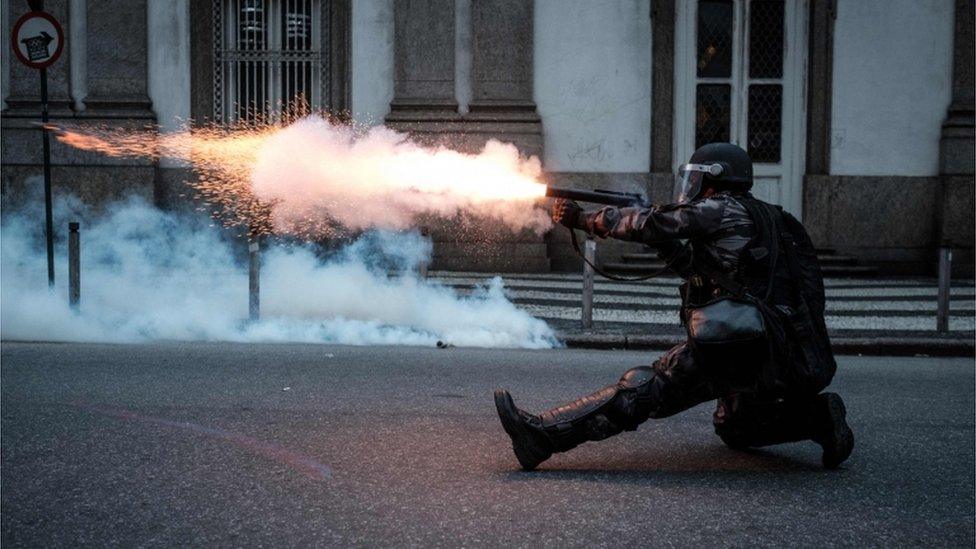
Military policemen fired teargas and rubber bullets in Rio's city centre
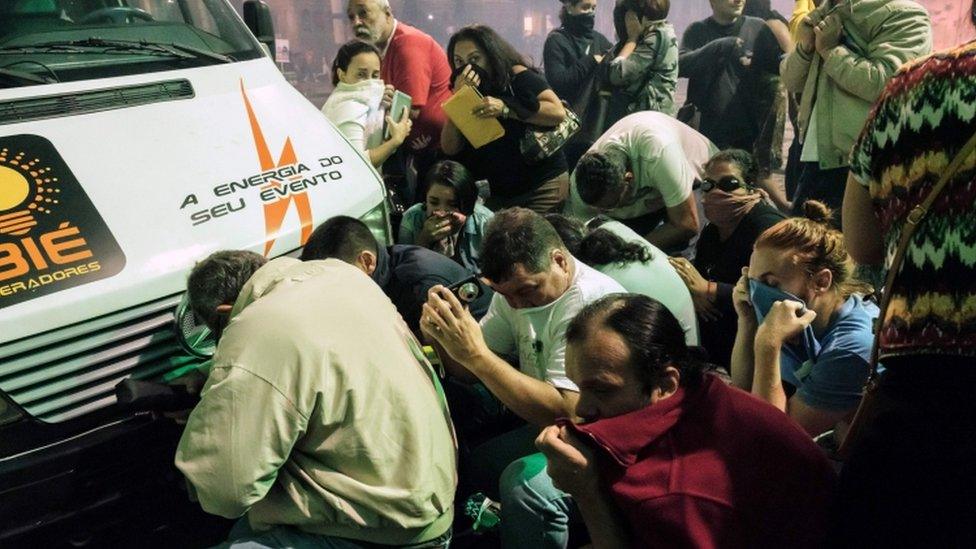
Protesters and other people had to run for cover
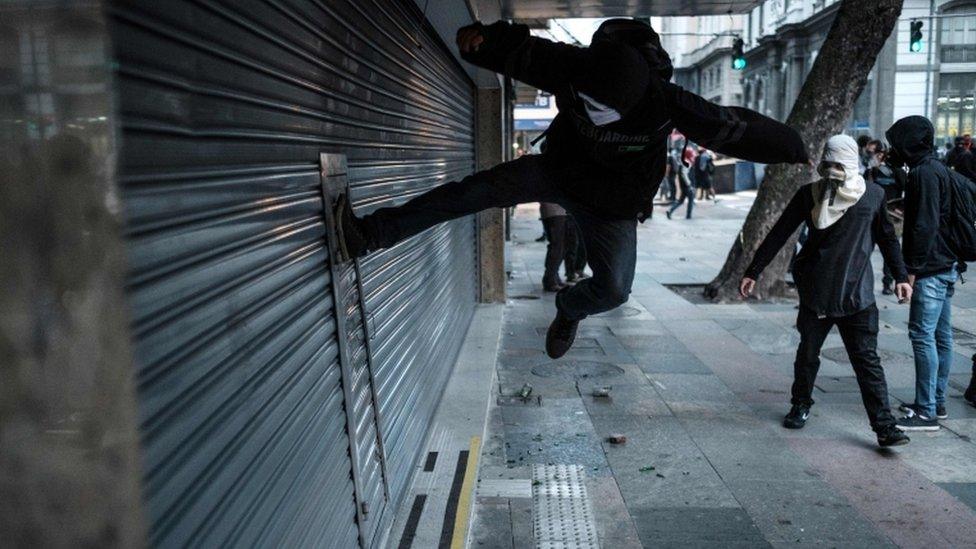
Shops were vandalised and looted
The trade unions say the poorest in Brazil will bear the cost of the changes, which include raising retirement age and reducing benefits.
The government argues that the measures are needed to avoid a collapse of the pension system.
The effects of the strike were felt across the country, Many people stayed at home, others only worked in the morning.
Many roads were blocked in Sao Paulo, Rio and other cities.
Early in the evening, opposition demonstrators took part in rallies and protests to show their discontentment with Mr Temer's pension reform.
In Rio, some of the protests descended into violence.
Police fired tear gas and activist hurled stones.
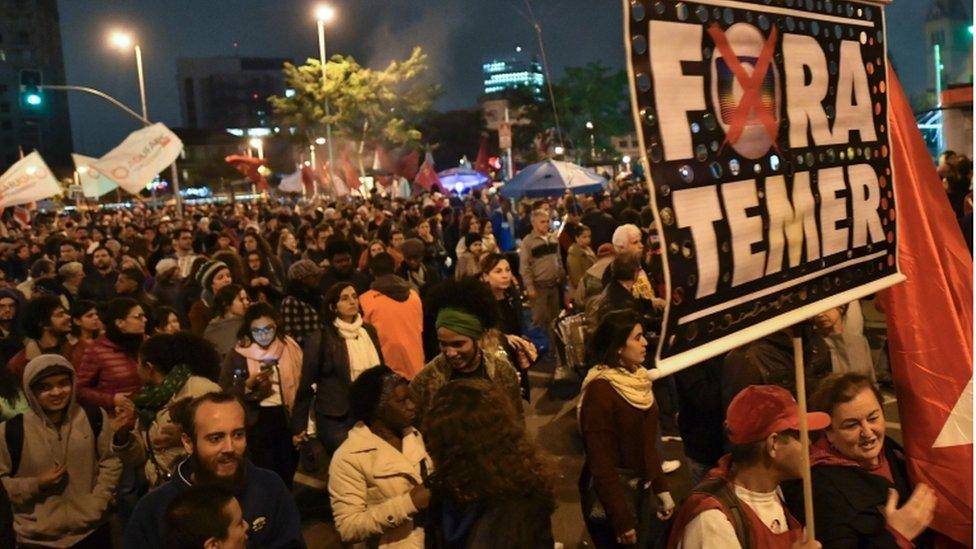
"Temer out" reads a banner at an opposition march in Sao Paulo
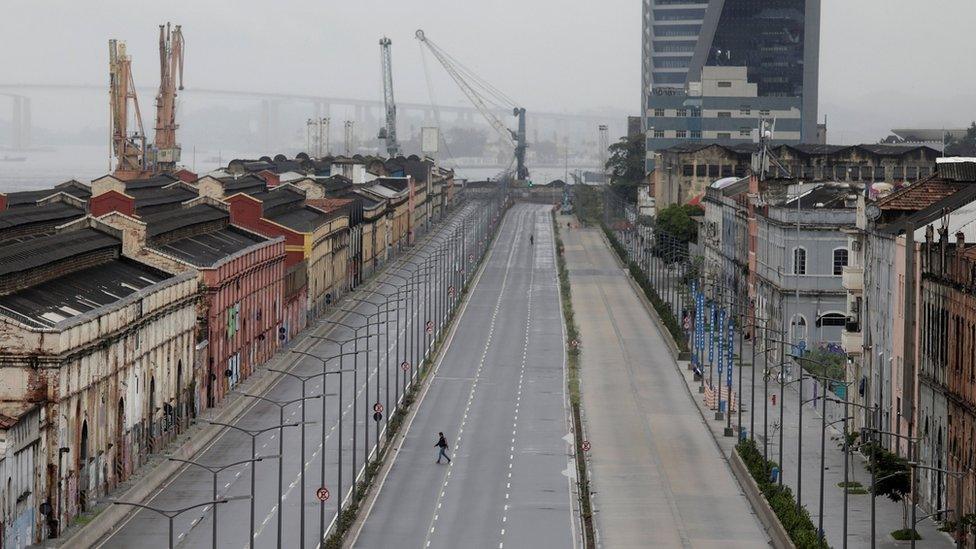
Some of Rio's main roads remained empty as demonstrators blocked traffic during the day
Eight buses were set alight, according to O Globo newspaper.
In Brazil's largest city, Sao Paulo, thousands of demonstrators marched on Mr Temer's private residence. Police fired teargas to disperse the crowd.
The government said the general strike would have no impact on the reforms.
Earlier this week Mr Temer won a parliamentary vote supporting his labour reforms by a clear margin.
This has been the hallmark of his administration: a president who is very unpopular in the streets, but is able to get things done in Congress, says the BBC's Daniel Gallas in Sao Paulo.
Mr Temer took office a year ago, when then-President Dilma Rousseff was suspended by Congress to face impeachment proceedings.
He was sworn in in September, after the Senate voted to dismiss her over accounting irregularities. His term ends in December 2018.
- Published28 April 2017
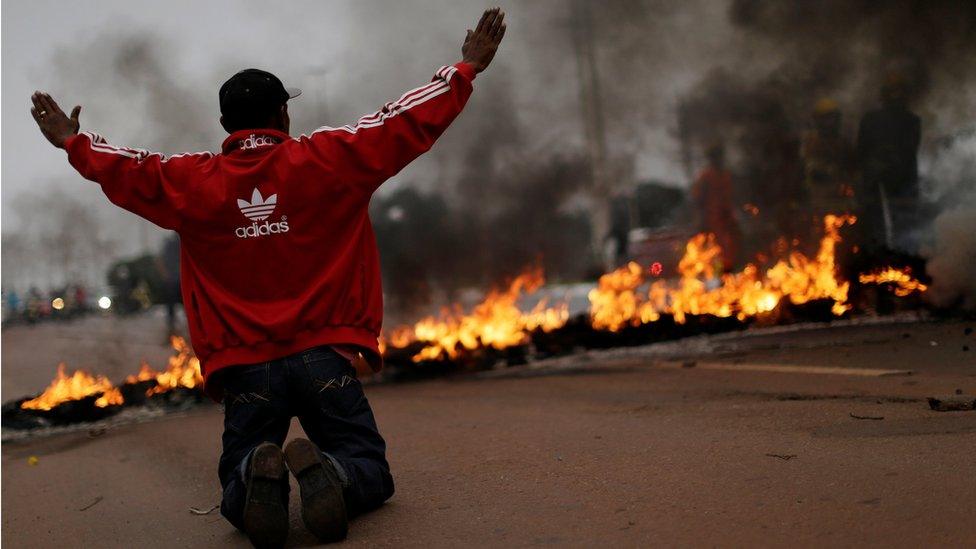
- Published15 March 2017
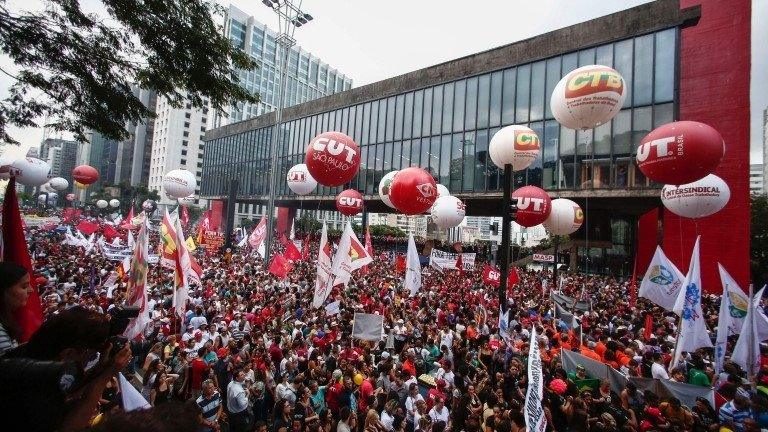
- Published26 April 2017
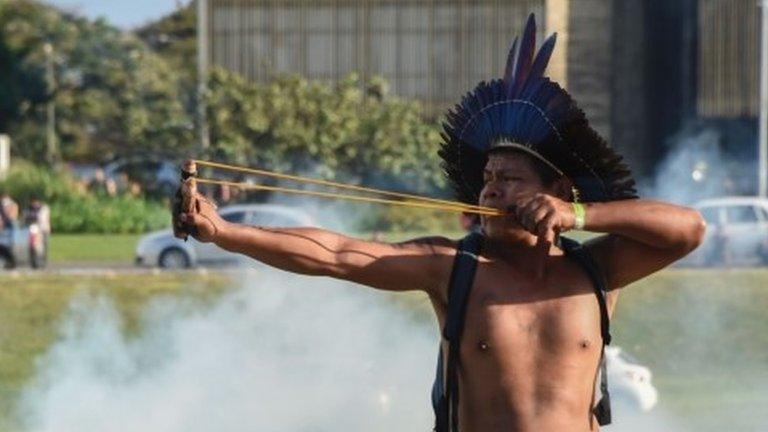
- Published17 April 2017
